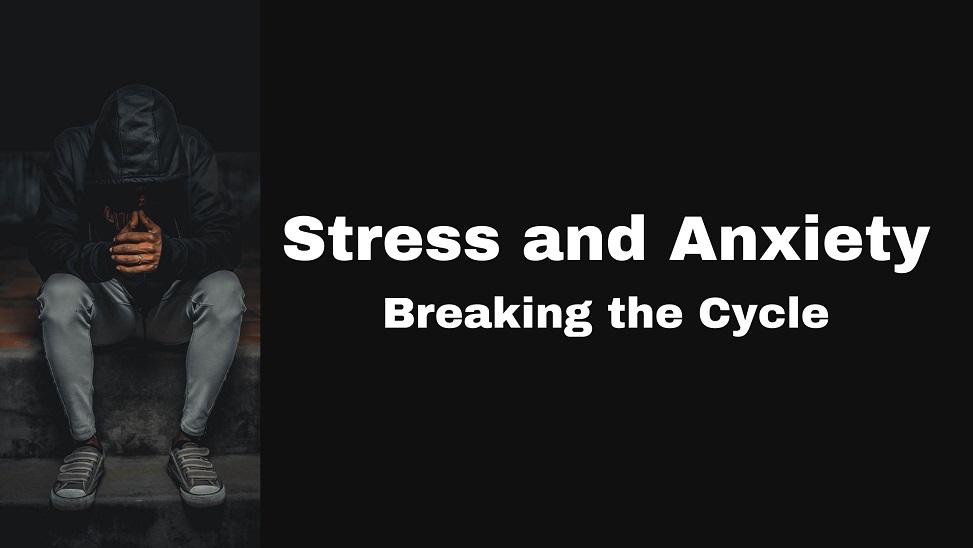Stress and Anxiety – Breaking the Cycle
Stress and anxiety are common experiences that many individuals face in today’s fast-paced world.
While stress is a natural response to challenges, chronic stress can give rise to anxiety, leading to a vicious cycle that affects mental and physical well-being.
Understanding the relationship between stress and anxiety and learning effective strategies to break this cycle is crucial for achieving balance and peace.
This post will explore the connection between stress and anxiety and provide insights into breaking free from their grip.
The Stress-Anxiety Connection
Stress and anxiety are closely intertwined, often feeding off each other in a cycle:
Stress Triggers Anxiety: Prolonged stress can trigger anxiety. When we face constant pressure, our minds become preoccupied with potential negative outcomes, leading to excessive worry and restlessness.
Anxiety Amplifies Stress: Anxiety heightens our stress response. Worries about the future, negative thoughts, and physical sensations associated with anxiety increase stress levels.
Physical Effects: Both stress and anxiety activates the body’s “fight or flight” response, releasing stress hormones like cortisol and adrenaline.
Over time, this activation can lead to the physical symptoms like increased heart rate & muscle tension, and digestive issues.
Breaking the Cycle
Breaking free from the stress-anxiety cycle requires a multi-faceted approach that addresses the mind and body. Here are strategies to help you regain control:
Practice Mindfulness and Grounding Techniques
Mindfulness involves staying present at the moment, redirecting your focus away from worries about the future.
Grounding techniques, such as the 5-4-3-2-1 exercise (identifying five things you can see, four things you can touch, and three things you can hear, 2 things you can smell & 1 thing you can taste), can help anchor you in the present and reduce anxiety.
Challenge Negative Thoughts
Anxiety often arises from distorted and negative thinking patterns. Practice cognitive restructuring by questioning the validity of your anxious thoughts. Are they based on facts or assumptions? Challenging these thoughts can help diminish their power.
Breathing Exercises
Deep breathing exercises, like the 4-7-8 technique (inhale for 4 counts, hold for 7 counts, exhale for 8 counts), activate the body’s relaxation response. These exercises calm the nervous system and lower stress and anxiety levels.
Regular Physical Activity
Engaging in regular exercise releases endorphins, which act as natural mood enhancers. Regular physical activity not only reduces stress hormones but also helps manage anxiety.
Balanced Nutrition
A well-balanced diet rich in nutrients supports both mental and physical well-being. Foods like omega-3 fatty acids (that can found in fish and nuts) and complex carbohydrates (found in whole grains) can positively impact mood and reduce anxiety.
Quality Sleep
Prioritize restful sleep to promote mental and emotional resilience. Establish a regular sleep-routine & create a comfortable sleep environment.
Limit Stressors
Identify & manage sources of stress in your life. Set realistic goals, delegate tasks, and avoid over-committing. Learning to say no when necessary is important for stress and anxiety reduction.
Seeking Professional Help
If you find it challenging to break the stress-anxiety cycle alone, consider seeking help from mental health professionals. Therapy and counseling can provide you with personalized strategies to manage stress and anxiety effectively.
Conclusion
Breaking the stress-anxiety cycle requires a concerted effort to address both the mind and body.
You can regain control over your mental and emotional well-being by practicing mindfulness, challenging negative thoughts, engaging in breathing exercises, maintaining physical activity, prioritizing nutrition and sleep, and seeking professional guidance.
Remember that it’s a journey, and with consistent practice, you can break free from the cycle of stress and anxiety, fostering a life marked by resilience, peace, and overall well-being.
Thanks for visiting How To Cure Stress

